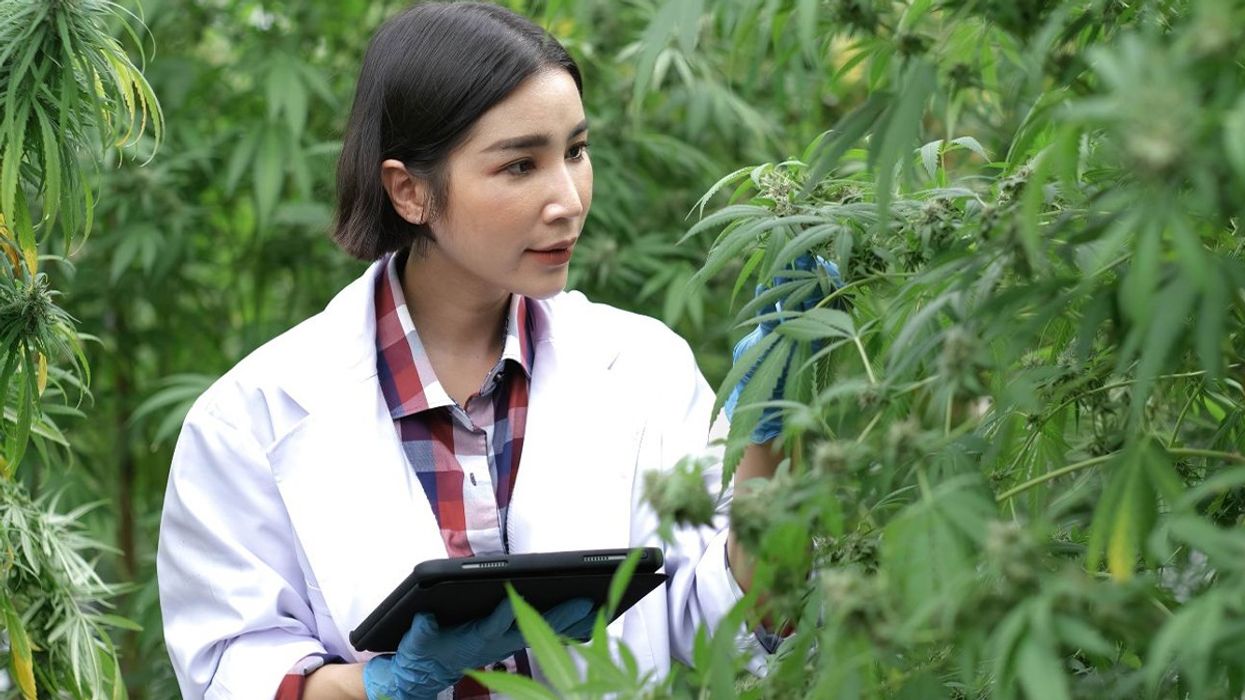If you haven't noticed, marijuana use is on the rise. Whether it's chronic pain relief, sleep aid, anxiety, glaucoma, seizure control, muscle spasms, or just recreational, there are plenty of arguments to be made in its favor. But, as with pretty much every thing that people claim to be the best thing ever, there's usually a caveat. A study of the affects on the body with cannabis use found similar concerns to those with smoking cigarettes.
The study sought to uncover how cannabis affects the genetic code. If so, were there potential positive or negative affects relating to health concerns. Researchers found marijuana’s impact was more far-reaching than earlier believed.

The epigenetic code
The National Library of Medicine explains epigenetics as the study into cells controlling gene activity without changing the actual DNA sequence. It writes, "Environmental influences, such as a person’s diet and exposure to pollutants, can impact the epigenome."
Why is that important?
Changes to the code have influences upon age related illness like cancer, neurodegenerative disorders, and cardiovascular disease. A study on Epigenetics of aging and disease: a brief overview writes, "Several studies showed that an impairment of epigenetic mechanisms promotes alteration of gene expression underlying several aging-related diseases."
Cigarette Smoke
It's well established that smoking cigarettes is a substantial threat to human health on a global scale. There are many studies much like The role of cigarette smoke-induced epigenetic alterations in inflammation, that show smoking leads to epigenetic alterations. These alterations that cause serious risk for respiratory, cardiovascular, lung, colon, and other disease.
Study on Marijuana use

It's a lot of science talk, but simply put, a person's genes can be affected. Those affects can cause physical changes in the body. Those changes can lead to age related health concerns. Studies show cigarette smoke does this. A new study published in Molecular Psychiatry claims marijuana use does also.
As reported in Northwestern Medicine, "In our study, we observed associations between cumulative marijuana use and multiple epigenetic markers across time,” said Lifang Hou, the senior author of the study who went on to say, “Interestingly, we consistently identified one marker that has previously been associated with tobacco use, suggesting a potential shared epigenetic regulation between tobacco and marijuana use. The observed marijuana markers were also associated with cell proliferation, infection and psychiatric disorders, however, additional studies are needed to replicate and verify these findings.”

Drew Nannini, DO, PhD, first author on the study said, “This research has provided novel insights into the association between marijuana use and epigenetic factors.” Nannini goes on to say, "Additional studies are needed to determine whether these associations are consistently observed in different populations. Moreover, studies examining the effect of marijuana on age-related health outcomes may provide further insight into the long-term effect of marijuana on health.”

A large majority of Americans advocate for the legalization of marijuana on a Federal level.
The Pew Research Center writes, "Around nine-in-ten U.S. adults say either that marijuana should be legal for medical and recreational use (54%) or that it should be legal for medical use only (33%)."
The simple truth, there is still much research needed into the broad and long term affects of marijuana. Questions on long-term brain effects, vaping vs. smoking vs. edibles, impacts on pregnancy, cardiovascular health, interactions with medications, effects on aging, and others are all yet to be substantially evidenced.


















 Volunteers who drive homeless people to shelters talk with a person from Ukraine in Berlin on Jan. 7, 2026.
Volunteers who drive homeless people to shelters talk with a person from Ukraine in Berlin on Jan. 7, 2026.
 Tasks that stretch your brain just beyond its comfort zone, such as knitting and crocheting, can improve cognitive abilities over your lifespan – and doing them in a group setting brings an additional bonus for overall health.
Tasks that stretch your brain just beyond its comfort zone, such as knitting and crocheting, can improve cognitive abilities over your lifespan – and doing them in a group setting brings an additional bonus for overall health. Overdoing any task, whether it be weight training or sitting at the computer for too long, can overtax the muscles as well as the brain.
Overdoing any task, whether it be weight training or sitting at the computer for too long, can overtax the muscles as well as the brain.

 Amoxicillin is a commonly prescribed broad-spectrum antibiotic.
Amoxicillin is a commonly prescribed broad-spectrum antibiotic.  Chart: The Conversation, CC-BY-ND
Chart: The Conversation, CC-BY-ND
 Counterintuitively, social media can make you feel more bored and lonely.
Counterintuitively, social media can make you feel more bored and lonely. Talking about what you’ve read can add a social dimension to what can be a solitary activity.
Talking about what you’ve read can add a social dimension to what can be a solitary activity. 
 Women and people of color who experience cardiac arrest are less likely to receive CPR.
Women and people of color who experience cardiac arrest are less likely to receive CPR.

 Mushrooms containing psilocybin.Photo credit:
Mushrooms containing psilocybin.Photo credit:  Woman undergoing cancer treatments looks out the window.Photo credit:
Woman undergoing cancer treatments looks out the window.Photo credit:  Friend and patient on a walk.Photo credit:
Friend and patient on a walk.Photo credit: